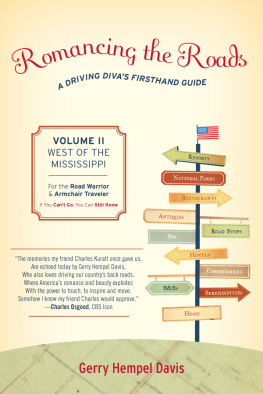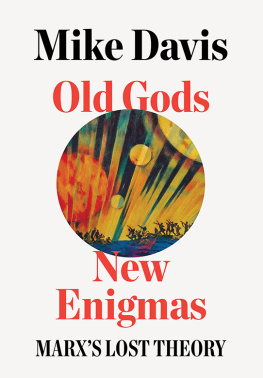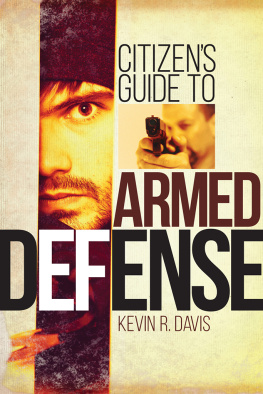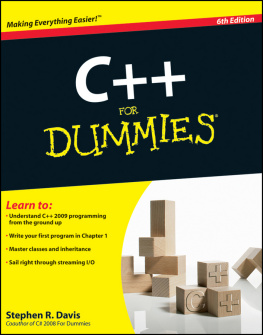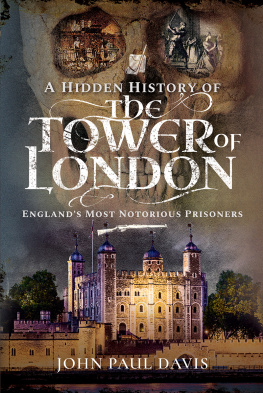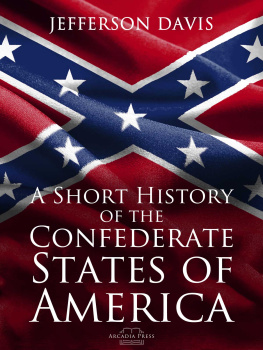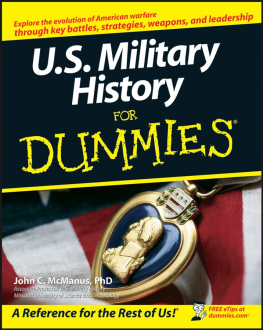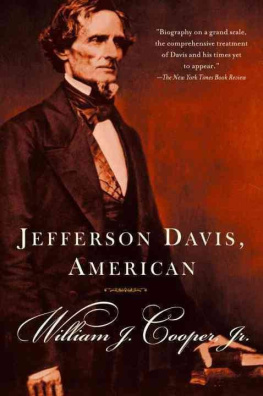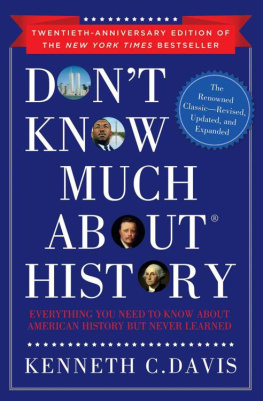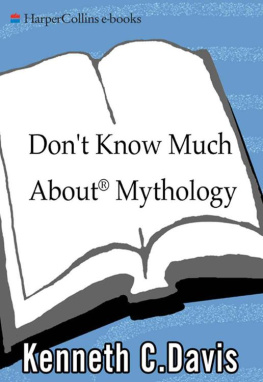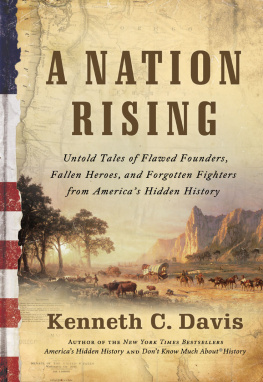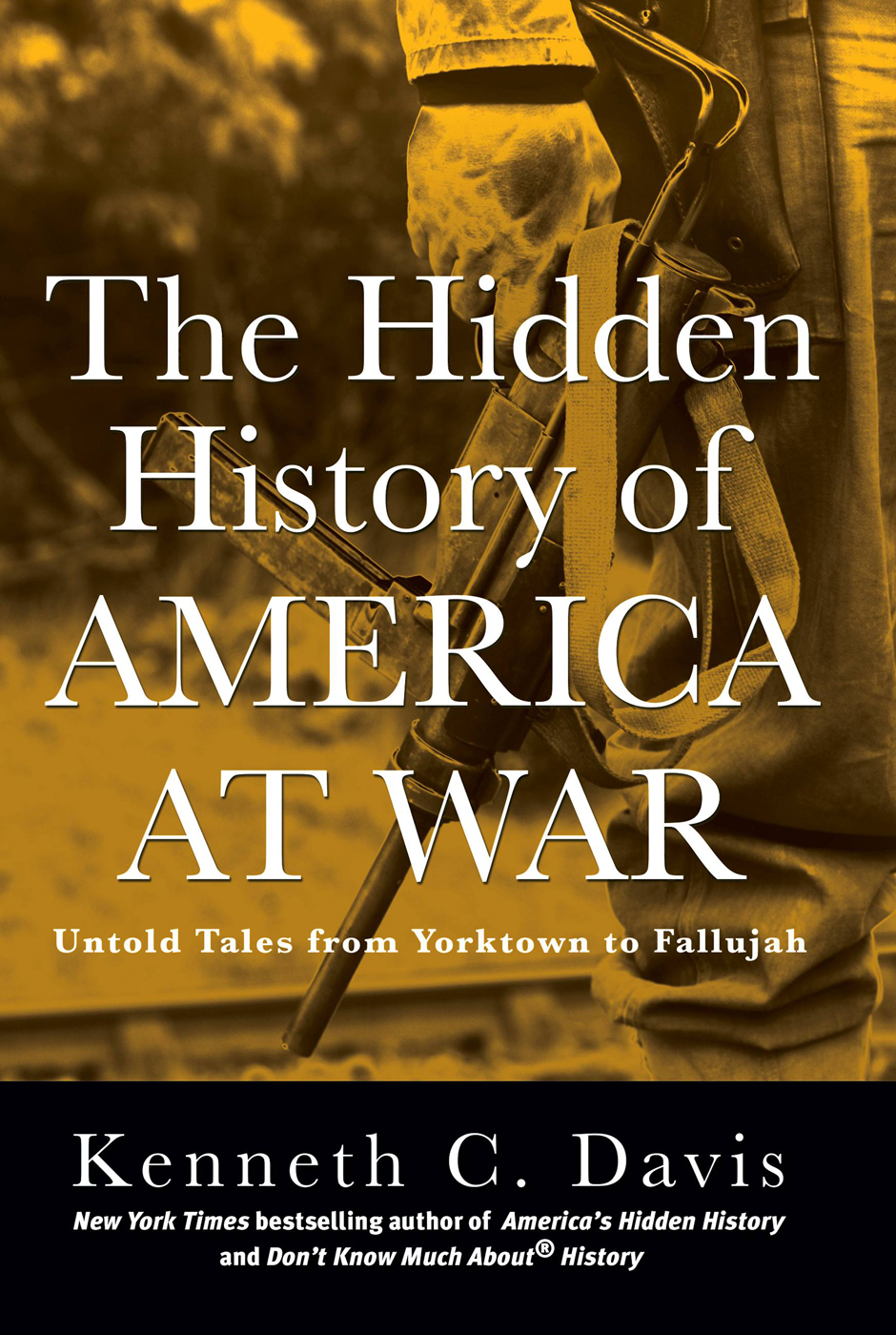Thank you for buying this ebook, published by HachetteDigital.
To receive special offers, bonus content, and news about ourlatest ebooks and apps, sign up for our newsletters.
Copyright 2015 Kenneth C. Davis
All rights reserved. In accordance with the U.S. Copyright Act of 1976, the scanning, uploading, and electronic sharing of any part of this book without the permission of the publisher constitute unlawful piracy and theft of the authors intellectual property. If you would like to use material from the book (other than for review purposes), prior written permission must be obtained by contacting the publisher at permissions@hbgusa.com. Thank you for your support of the authors rights.
Hachette Books
Hachette Book Group
1290 Avenue of the Americas, New York, NY 10104
hachettebookgroup.com
First ebook edition: May 2015
Hachette Books is a division of Hachette Book Group, Inc.
The Hachette Speakers Bureau provides a wide range of authors for speaking events. To find out more, go to www.hachettespeakersbureau.com or call (866) 376-6591.
The publisher is not responsible for websites (or their content) that are not owned by the publisher.
ISBN 978-1-401-33078-1
E3
The Dont Know Much About Series
Dont Know Much About The American Presidents
Dont Know Much About History
Dont Know Much About Geography
Dont Know Much About the Civil War
Dont Know Much About the Bible
Dont Know Much About the Universe
Dont Know Much About Mythology
A Nation Rising
Americas Hidden History
Two-Bit Culture: The Paperbacking of America
We are met on a great battlefield of that war. We have come to dedicate a portion of that field, as a final resting place for those who gave their lives that the nation might live. It is altogether fitting and proper that we should do this.
But, in a larger sense, we cannot dedicatewe cannot consecratewe cannot hallowthis ground. The brave men, living and dead, who struggled here have consecrated it far above our poor power to add or detract.
Abraham Lincoln (November 19, 1863)
Dedicated to those who
gave the last full measure of devotion
It is sweet and honorable to die for ones country. (Dulce et decorum est pro patria mori.)
Horace, Odes (23 BC)
There never was a good war or a bad peace.
Benjamin Franklin (September 11, 1783)
War is not merely a political act, but also a political instrument, a continuation of political relations, a carrying out of the same by other means.
Karl von Clausewitz (1833)
War is an ugly thing, but not the ugliest of things: the decayed and degraded state of moral and patriotic feeling which thinks that nothing is worth a war, is much worse.
John Stuart Mill (February 1862)
War is barbarism. It is only for those who have neither fired a shot nor heard the shrieks and groans of the wounded who cry aloud for blood, more vengeance, more desolation. War is hell.
William Tecumseh Sherman (June 19, 1879)
W ar stories. We have been telling them for a very long time. You can start with Bible tales of Egyptians drowning in their chariots in the sea or a shepherd boy with a slingshot killing a giant, or the epic siege of Troy in Homers Iliad. Move on to the American classicsfrom James Fenimore Cooper to The Red Badge of Courage, Hemingway, The Killer Angels, and The Things They Carried. Then watch all the way through Hollywoods long love affair with wartime, from The Birth of a Nation to Saving Private Ryan, Apocalypse Now, Glory, and The Hurt Locker. Tales of men in combat are at the heart of our literature, culture, history, and mythology.
Unfortunately, many war stories have been told and retold so many timesrepackaged and often heavily embellished along the waythat the truth behind them has been whitewashed and airbrushed, buried under a thick gloss of romanticism, lyricism, patriotic fervor, and propaganda. As Walt Whitman, mournful observer of Americas Civil War, once wrote, The real war will never get in the books.
My first taste of war and battle came in the backyard of my boyhood suburban home. The lawn and woods behind my house in Mount Vernon, New York, filled in for the Alamo, Gettysburg, and Normandy. Weighted down by a small armorys worth of toy weaponry, my friends and I did regular battle with Santa Annas Mexicans, the Johnny Rebs, and the Nazis. Then we went up the street to the playground and played some stickball.
This was the late fifties and early sixties. John Wayne, Audie Murphy, and Charlton Heston were comfortably fixed in the pantheon of Americas war gods. War, as we knew it, was glorious, exciting, fun, and harmless. And soldiers were revered as tough guys with soft hearts.
My late father was one of them. He had served in North Africa and Italy during World War II and, along with several of my uncles, was one of those Greatest Generation veterans. These were the men, we had learned growing up, who had been willing to sacrifice everything for their country and each other. Ordinary citizen soldiers, they were the noble, patriotic, average Joes who had whipped the Nazis and the Japanese.
My father rarely spoke of his wartime experiencesa silence I now greatly regret. I had never really asked, What did you do in the war, Daddy? But I could tell from the mention of a glorious sunrise glimpsed in North Africa or the few choice words in Italian, as well as the mean meatball recipe he had brought home, that his wartime experiences had mattered deeply to him. I still believe that his army years were among his happiest. I never knew for sure.
Instead, we went to movies like The Guns of Navarone and The Longest Day, sat together to watch television shows like Combat and The Rat Patrol, and went camping with army surplus sleeping bags and tents to places like Fort Ticonderoga in upstate New York, or Gettysburg, Pennsylvania. I still have my souvenir of that latter visita wooden toy revolver stamped with the dates of the battle: July 13, 1863. I also possess a powerful recollection of standing on that battlefieldLincolns hallowed groundand feeling that something extraordinary had happened there.
But then a switch was thrown. Within a few years, my playlist had a new sound. The folk songs and antiwar anthems of Bob Dylan and Richie Havens spoke to me far more convincingly than the Fighting soldiers from the skies elegized in Barry Sadlers 1966 hit song Ballad of the Green Berets.
By 1968, the answer blowing in the wind meant that John Waynes jingoistic bravado was no longer box-office boffo. The Green Berets, the movie inspired by Sadlers tune, was described by a



